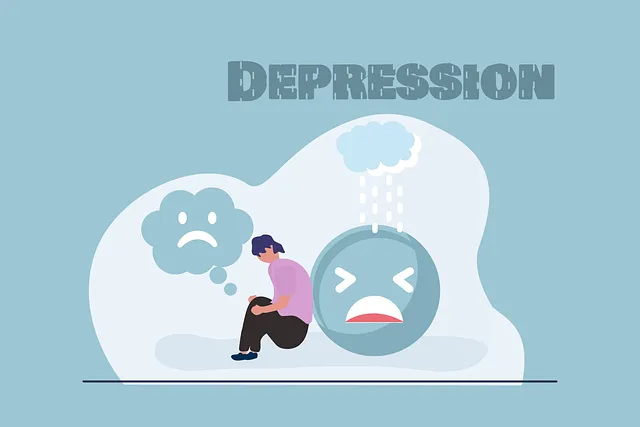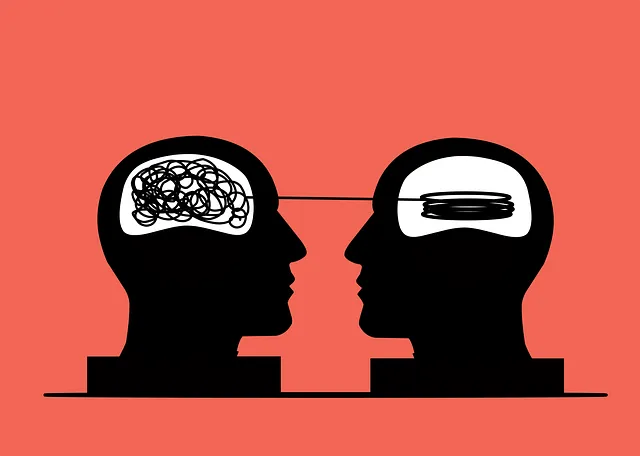The media's portrayal of mental illness impacts public understanding, often presenting simplified or stereotypical versions that lead to stigma. Kaiser Permanente, through its Aurora Initiative, offers comprehensive mental health services and stigma reduction efforts, promoting techniques like mood management and mental wellness journaling. Aurora challenges stereotypes by providing educational programs, therapeutic options, support groups, and tailored resources, encouraging open conversations about mental illness and fostering a more empathetic community. Media should accurately depict symptoms and showcase diverse narratives to destigmatize mental health issues, with healthcare institutions like Kaiser leading the way in accessible services and trauma support.
In today’s media landscape, the representation of mental illness is a powerful tool that can either perpetuate stigma or challenge societal perceptions. This article explores the profound impact of media portrayal on mental health and proposes solutions to promote accurate, empathetic depictions. We review Kaiser’s comprehensive approach to mental health services, highlighting innovative initiatives. Specifically, Aurora’s commitment to challenging stigma and fostering awareness serves as a compelling example. Additionally, we offer effective strategies for media outlets to accurately portray mental illnesses, contributing to a more understanding and supportive society.
- Understanding the Impact of Media Portrayal on Mental Health Perception
- Exploring Kaiser's Approach to Mental Health Services: A Comprehensive Review
- Aurora's Initiative: Challenging Stigma and Promoting Awareness
- Effective Strategies for Accurate and Empathic Media Representation of Mental Illnesses
Understanding the Impact of Media Portrayal on Mental Health Perception

The media’s portrayal of mental illness can significantly shape public perceptions and understanding. Often, media narratives present simplified or stereotypical versions of various mental health conditions, which can lead to misconceptions and stigma. This is particularly concerning as media has a vast reach, influencing how society views and treats individuals with mental illnesses. For instance, popular culture frequently depicts depression as mere sadness or anxiety as a fleeting panic, missing the complex nature of these disorders. Such representations may discourage those struggling from seeking help, as they might fear judgment or relate to the inaccurate depictions.
In light of this, organizations like Aurora does Kaiser offer mental health services, providing accessible resources and support. By prioritizing accurate representation in media, we can foster a more empathetic society. Encouraging self-care practices and positive thinking alongside reducing stress through various methods are essential components of addressing mental health challenges. Ultimately, challenging negative stereotypes in media is crucial to creating an environment where individuals feel supported and understood on their journey towards healing.
Exploring Kaiser's Approach to Mental Health Services: A Comprehensive Review

In recent years, there’s been a growing emphasis on accurate and sensitive representation of mental illness in media as a strategy to reduce stigma. One notable organization taking the lead in this area is Kaiser Permanente, renowned for its comprehensive healthcare services. Aurora, specifically, questions whether Kaiser offers mental health services that align with their commitment to community well-being. A thorough review reveals Kaiser indeed provides a wide range of mental health support, from outpatient therapy and medication management to specialized programs addressing specific disorders.
Beyond direct service provision, Kaiser engages in robust Mental Illness Stigma Reduction Efforts, integrating awareness campaigns and educational resources into its healthcare framework. Mood Management techniques are heavily emphasized, offering patients tools to regulate their emotional states effectively. Additionally, the organization promotes Mental Wellness Journaling Exercise Guidance as a means of self-care and personal growth. These initiatives underscore Kaiser’s dedication to holistically addressing mental health within its community, mirroring the global shift towards destigmatizing mental illness.
Aurora's Initiative: Challenging Stigma and Promoting Awareness

Aurora’s Initiative is a powerful movement challenging the stigma surrounding mental illness and promoting increased awareness. This initiative, supported by Kaiser, aims to educate the public and provide resources for better understanding and support of those living with mental health conditions. By offering programs such as mental wellness journaling exercise guidance and healthcare provider cultural competency training, Aurora is making significant strides in shaping a more inclusive and supportive society.
In addition to these efforts, Aurora does Kaiser offer mental health services, ensuring accessible care for all. This includes various therapeutic options, support groups, and resources tailored to address different aspects of mental wellness. Through such initiatives, Aurora challenges outdated perceptions, fosters empathy, and encourages open conversations about mental illness, ultimately contributing to a healthier and more supportive community.
Effective Strategies for Accurate and Empathic Media Representation of Mental Illnesses

Media plays a significant role in shaping public perception, and accurate representation of mental illnesses is paramount to fostering understanding and reducing stigma. When media portrays individuals with mental health conditions, it offers an opportunity to challenge stereotypes and showcase the humanity behind these struggles. Effective strategies for empathic media representation include employing diverse narratives that reflect the wide spectrum of mental illness experiences, ensuring accurate symptom portrayal, and showcasing recovery stories alongside challenges.
In this regard, organizations like Kaiser can lead the way by offering mental health services that are accessible and promoted within their communities. Aurora, specifically, has initiatives focused on stress management workshops and mental wellness coaching programs to support individuals proactively. Additionally, trauma support services are integral to addressing the root causes of many mental health issues. By integrating these strategies, media and healthcare institutions can collaborate to present a more nuanced and empathetic view of mental illness, encouraging open conversations and promoting resources that drive positive change.
In conclusion, the article has explored the profound impact of media portrayal on perceptions of mental health. It has highlighted the need for accurate and empathetic representation, especially in light of initiatives like Aurora’s, which challenge stigma and promote awareness. Moreover, a comprehensive review of Kaiser’s approach to mental health services underscores the importance of accessible and quality care. By combining awareness campaigns with improved media representation, we can foster a more inclusive and supportive society for those facing mental illness, much like Aurora’s initiative aims to achieve.





